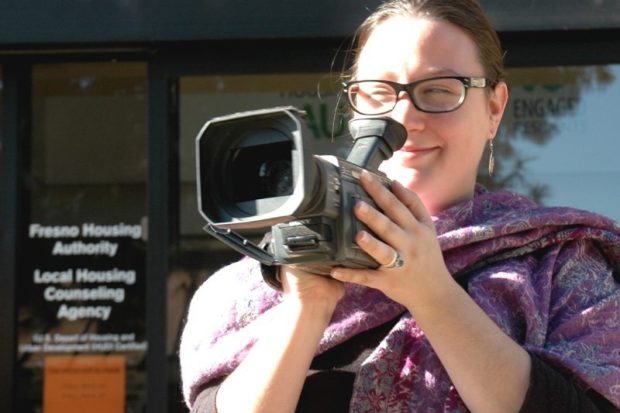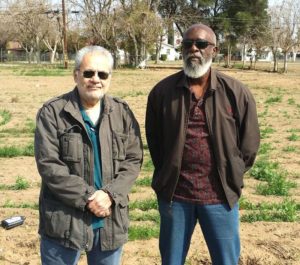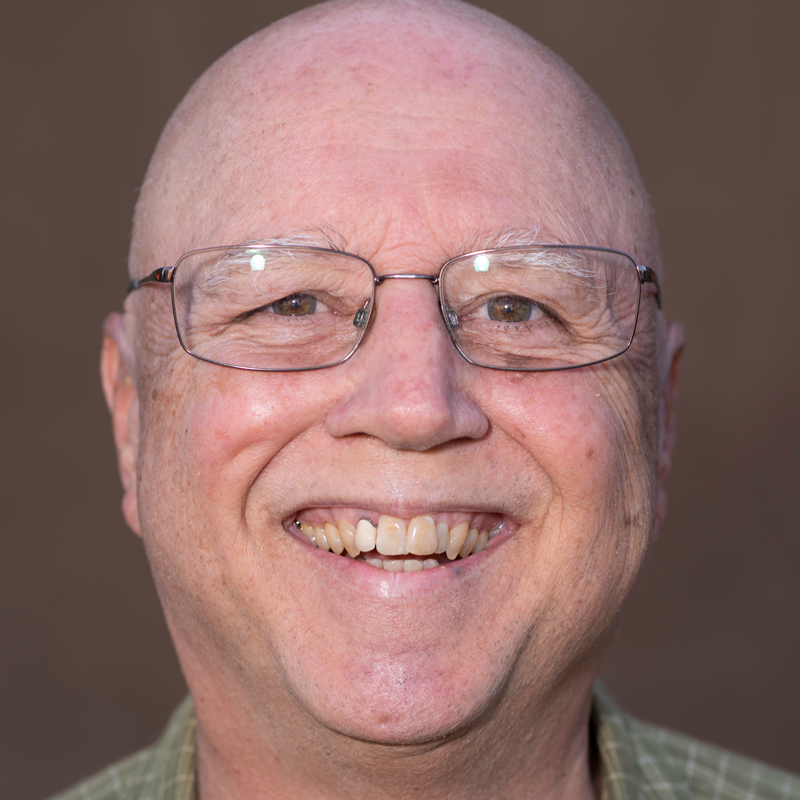
By Leonard Adame
Why did the Fresno Housing Authority at its Board Meeting on Jan. 22, 2014, prevent a Community Alliance representative from recording the meeting?
I was at this meeting when Preston Prince, director of the Fresno Housing Authority (FHA), asked Community Alliance representative Simone Whalen-Rhodes to not record the event. Board member Rev. Rueben Scott concurred with Prince, saying that the FHA should consult its attorney on whether to allow a recording. Scott also said that given what President Obama had been undergoing, apparently in reference (Scott didn’t elaborate) to the Edward Snowden affair, he was afraid that the resulting recording of the meeting might be used negatively and that the FHA board should be assured that its concerns would be addressed. Presumably, this means that the FHA board wants assurances that if it disapproves of the resulting recording, it would reserve the right to either stop its disbursement to the public or to edit the recording to its satisfaction.
Apparently, Prince and Rev. Scott have forgotten Ralph M. Brown, after whom the Ralph M. Brown Act is named. The Brown Act is a long document that defines what a public agency is, as well as what the rules are regarding open meetings held by public agencies in California. The act also defines “closed sessions,” public agency meetings that have to follow certain criteria if they are to be closed to the public.
It’s clear to this writer that preventing the recording of a public agency meeting, or in this case an “open” meeting, automatically transforms the meeting into a closed session. If this was the case, the FHA did not follow the Brown Act’s stipulations regarding announcement of open and closed meetings and acted arbitrarily in preventing Whalen-Rhodes from recording the meeting.
(When I asked about whether minutes of the meeting were available, the FHA responded that the minutes had to be approved at the next board meeting. To this date, the minutes are not available. Mike Rhodes, editor of the Community Alliance, says, “We are anxious to know if these minutes will reflect the Fresno Housing Authority’s disregard for and violation of the Brown Act or will they fail to properly record the discussion and vote that took place banning us from recording this public meeting.”)
In fact, Whalen-Rhodes was at the meeting to record Bob Mitchell’s comments on the Triangle Project and Prince’s reaction to Mitchell’s concerns, objections and concerns.
One reason the Brown Act was enacted into law was precisely to make public agencies and their business transparent to the public. There are, to be sure, certain times, such as a discussion of employment matters, when public agencies are allowed to hold closed sessions. But it’s clear that the meeting of Jan. 22 was not a closed session, and in fact was a meeting for the public to ask questions about its concerns, in this case the California Master Plan, or the Triangle Project.
As I listened to FHA president Prince and Board member Rev. Scott, I immediately thought that their action was illegal. As president of a public agency, shouldn’t Prince have been aware of the Brown Act’s stipulations regarding public attendance at board meetings, especially those during which members of the communities affected by the FHA policies and actions had been invited to come and ask questions and state concerns? And certainly at an open meeting, there is no rule stipulating that a recording of that session is not permissible.
In fact, the Brown Act states the following:
CHAPTER V.
RIGHTS OF THE PUBLIC
Under the Brown Act, a member of the public can attend a meeting of a legislative body without having to register or give other information as a condition of attendance. (§ 54953.3; see also 27 Ops.Cal.Atty.Gen. 123 (1956).) If a register, questionnaire or similar document is posted or circulated at a meeting, it must clearly state that completion of the document is voluntary and not a precondition for attendance. (§ 54953.3.) A legislative body may not prohibit any person attending an open meeting from video recording, audio recording or broadcasting the proceedings, absent a reasonable finding that such activity would constitute a disruption of the proceedings. (§§ 54953.5, 54953.6; Nevens v. City of Chino (1965) 233 Cal.App.2d 775, 779; see also § 6091.)
Clearly, in this case, the Brown Act was seriously violated, and it’s an issue that the Board should address so that public confidence in the FHA is not further weakened. Preventing the recording of a public agency’s open meeting can only lead to suspicion. What does the agency want to hide, of what is it afraid and how is it serving the public by not allowing the recording of a given meeting, especially of an open session designed to let the public contribute its points of view.
Another issue that undermined confidence in the FHA is one that concerns the California Master Plan, or the Triangle Project. There were several agencies involved with the Triangle Project, including the Redevelopment Agency (RDA), the Successor Agency, City Hall and the FHA, as well as members of the Golden Westside Planning Committee (GWPC).
According to Mitchell, a GWPC member, Fresno’s Westside community was promised a development project that would have provided new single-family homes, several new businesses and the beginning of a new era on the Westside. Mitchell says that people who looked forward to the development of the project were hopeful that at last the City of Fresno was addressing, in conjunction with the RDA, their concerns and needs. To that end, according to Prince, the Community Housing Partnership Program (CHPP) met with the GWPC in order to see that the project met with all legal requirements and had the approval of the Westside community.
Several meetings were held and the agencies and representatives of the Westside community attended. Throughout this time, during the past 12 years and more recently during 2012 and 2013, the GWPC believed that the project was moving forward, based on their meetings with the agencies and specifically with the FHA’s director Prince. According to Mitchell, the Westside community was, subsequently misinformed.

Mitchell has continually stated that Prince and various agencies continued to meet. As Mitchell and other members of the GWPC attended meetings, they continued believing that the project was ongoing, that in fact there would be new homes and businesses in the Triangle near Edison High School on California Avenue. Mitchell further says that during these meetings, specifically in July 2013, the agencies in fact had decided not to go forward with the Triangle Project. The problem is that, according to Mitchell, the GWPC wasn’t told that the project was no longer feasible. Prince contends that he had informed Mitchell and other Triangle Project supporters that the project would not be built and that money allocated for the project reverted to the RDA or its Successor Agency.
At the Jan. 22meeting held at the FHA, Mitchell spoke to the board to protest the lack of information from Prince and other agencies that the project was in effect dead.
In a phone interview, Mitchell said that he was led to believe that the FHA would reconsider the Triangle Project. At that time, Mitchell said he was told that the FHA no longer controlled the project and that he wasn’t informed of that outcome. Mitchell further stated that at a meeting with Debbie Darden, Prince and himself, they were shown a complete layout of the project, leading Mitchell and Darden to believe the project would be ongoing. At some point during this process, Mitchell believes that the RDA and the FHA couldn’t “come together” on the plans for the Triangle Project.
But in 2008, the RDA, represented by Terry Cox, came to Edison High School to pitch the Triangle Project: Citizens would review the Project. In 2011, the FHA presented the Triangle Project proposal. But in 2013, the FHA claimed that the project as initially designed, single-family dwellings and more retail units, was no longer feasible. Instead, Prince wanted to build higher-density dwellings—motel-like structures. The community was strongly disappointed at this point, said Mitchell. Their dream of a new neighborhood with retail stores serving the community was no longer on the table.
Though Prince kept saying the project was still viable, according to Mitchell, Prince later indicated that Marlene Murphy, RDA director, informed Mitchell and the Triangle Project supporters, sometime in 2012, that the project was under contract and in fact in escrow, meaning the FHA no longer controlled the project, which meant the demise of the entire Triangle Project development. Again, Prince, citing a long list of factors and dates, said that Mitchell and the GWPC had been informed of all processes, finally telling Mitchell and the GWPC that the project would not be built.
I spoke with several people after the Jan. 22 meeting, and all agreed with Mitchell, that the FHA and Prince had not informed the GWPC of the demise of the Triangle Project.
Diane Smith, a member of HEAT, another group of involved citizens, says one reason the project was killed was that, after Gov. Jerry Brown disbanded the RDA, the Successor Agency and the City Council allotted the money originally intended for the Triangle Project to other projects. A call to the City Hall Planning Department to inquire about this wasn’t returned.
Smith believes that the many promises made to the community were not fulfilled. She also says that at meetings regarding the project, officials “dictated with plans” and that no community input was allowed. She says also that city officials and the agencies involved ignored community wishes. The community members made it clear that they wanted retail shops and stores, perhaps a Walmart.
Smith says that the RDA had agreed that the money would be allotted for those projects. Smith says that the FHA, however, gave the community inaccurate information and denied the community’s request to see information on an Audit of Tax Increment dollars. Those dollars, Smith says, went toward purchases not related to the Triangle Project. She suggests that the money taken from the Triangle Project was earmarked for improvements along the high-speed rail line in Fresno and for the improvement of Chandler Airport so that private jets could use the airport.
Darden, also a member of the GWPC, agrees with Mitchell and Smith. She also believes that the needs of the Westside were used as a means to get money for RDA projects, which never truly included the Triangle Project. Darden also states that ignoring the Westside’s needs for housing and economic development is a matter of institutional racism. This means that a pattern and practice of conducting city business routinely ignores the poorest members of a city (or other entity, such as a college).
Mitchell further made the point that so many projects were built by the city, including, years earlier, Manchester Center, Fashion Fair and, more recently, River Park. The west side of Fresno has been routinely ignored, he asserted.
Again, Prince denies not informing people, but he says he and the FHA, and presumably other agencies involved, could have done a better job of informing the community on the progress or the demise of the Triangle Project. Prince promised that “we will be very clear in the future.”
At the Jan. 22 meeting, I felt, after Mitchell spoke regarding the above information about the demise of the project, that Prince became defensive more than informative. Still, his version contradicts Mitchell’s version. However, the supporters of the Triangle Project supported Mitchell’s interpretation of events.
And more than once, Board members attempted to stop Mitchell from explaining what he felt to be true.
At the very least, the FHA has not done a good job of administering the funding process. It had not done a good job of involving the Westside community at all phases of the project and of not clearly explaining the effects of the RDA’s demise and what that would mean for the Triangle Project. The RDA and the FHA did not make financial information available to the GWPC.
And it seems to me that the FHA let Mitchell and the GWPC continue believing the project was going to be built even though the FHA and Prince knew that the money had been withdrawn, effectively killing the project. No one from the GWPC knew that the money had been withdrawn, much less that the project would not be constructed.
On two counts, the violation of the Brown Act and on not fulfilling its job to include the community in a project that affected them profoundly, the FHA failed. One only hopes that the FHA does a better job and that it is made clear to that agency that it works for the public, is funded by the public, and that its mission is to serve and gain the public’s trust.
*****
Leonard Adame has retired from teaching college English. He now plays drums in various bands, takes photographs, reads mystery novels to a fault and has published poetry in college anthologies. He most enjoys re-learning about human beings from his grandkids. Contact him at giganteescritor@hotmail.com.

